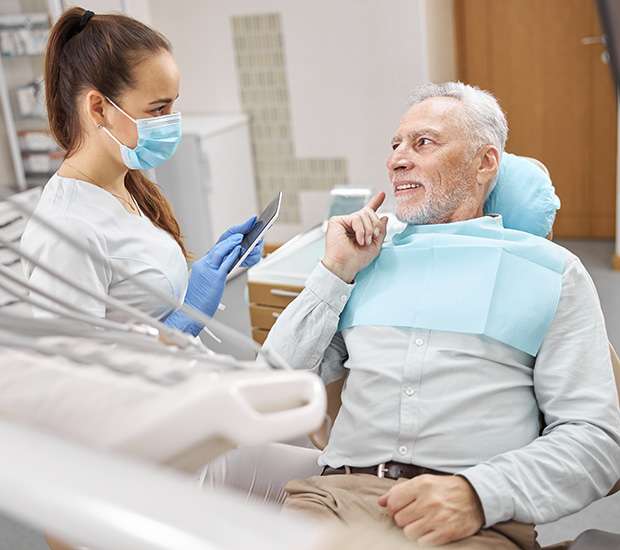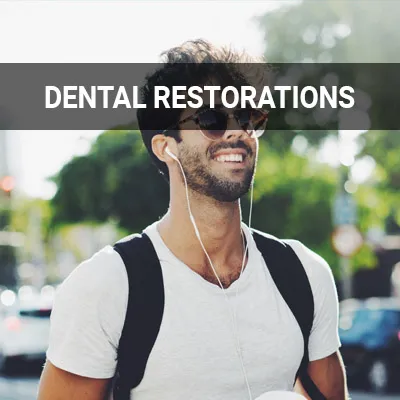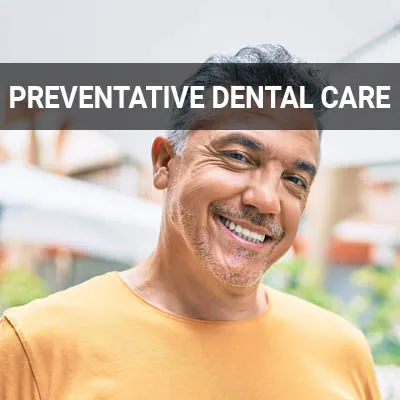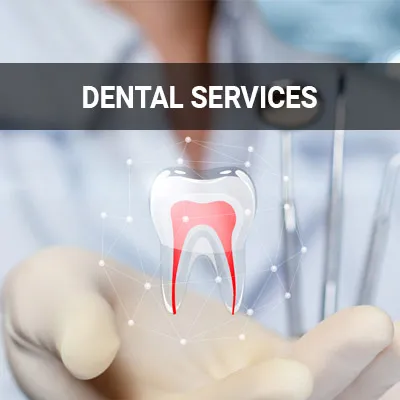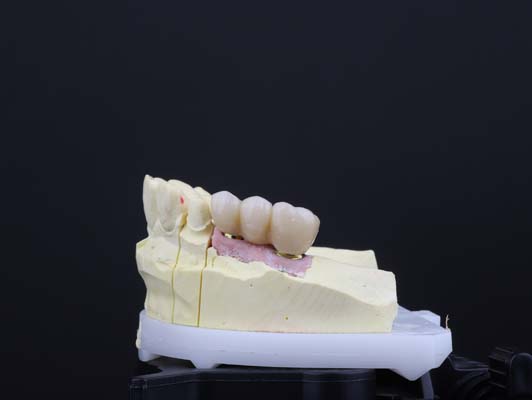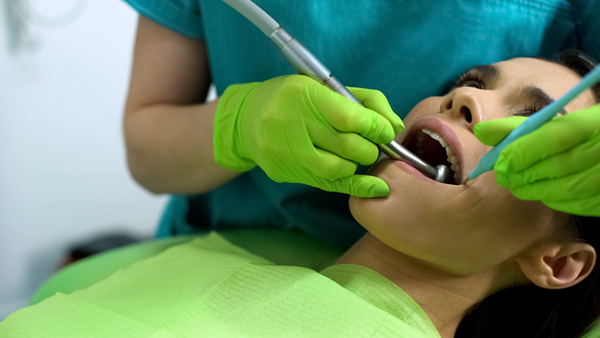Hard-Tissue Laser Dentistry Batesville, IN
Although hard-tissue laser dentistry has been around for several decades, it has recently become an increasingly popular treatment method. Dentists can use precise laser procedures to address many types of common dental problems. Hard-tissue laser dentistry is the practice of using a high-intensity laser to remove damaged tissue from around teeth.
Hard-tissue laser dentistry is available at Batesville Dental in Batesville and the surrounding area. We use this treatment to resolve a variety of dental issues. Our team can help you decide if laser dentistry is right for you.
Addressing dental problems quickly is important for oral health. If you are nervous about having dental work done due to the discomfort typically associated with dental procedures, laser dentistry could help ease your anxiety. Call us at (812) 934-3651 to schedule an appointment.
Benefits of Hard-Tissue Laser Dentistry
Laser dentistry first began in 1960 after the first ruby laser was developed. Since then, the practice has separated into hard-tissue and soft-tissue dentistry. Hard-tissue dentistry focuses on resolving dental problems, while soft-tissue lasers are usually used for cosmetic reasons. Both types of laser dentistry offer many benefits, including the ones listed below.
- Lasers are sterile: Since lasers work by emitting high-intensity light, they are more sterile than traditional dental tools. The presence of bacteria could lead to a post-procedure infection. Using lasers means there is less chance of infection.
- Lasers may involve less pain: Many people fear dental work because most procedures involve some form of discomfort. Laser dentistry is direct and does not damage the tooth or the roots, resulting in reduced pain for many people. In several cases, a local anesthesia may not be necessary for laser dental work.
- Lasers provide enhanced precision: Lasers are more precise than traditional dental tools. While dentists once may have needed to remove healthy tissue to get to damaged tissue, laser dentistry allows them to target specific areas of the mouth. There is no need to risk damaging healthy tissue.
- Lasers promote faster healing: There is little recovery time associated with laser dentistry. Lasers cauterize damaged nerves, resulting in less bleeding. Patients do not usually need stitches after laser treatment, which speeds up the recovery process.
“Hard-tissue dentistry focuses on resolving dental problems, while soft-tissue lasers are usually used for cosmetic reasons.”
Standard Laser Treatment Process
While hard-tissue lasers have many uses, they are primarily utilized to find and remove cavities. Enhanced precision lasers often allow dentists to target the affected tooth without risking damage to the healthy tissue surrounding it. Hard-tissue lasers also help prepare teeth for crowns and fillings.
People who are interested in laser dentistry can expect dentists to evaluate the severity of their dental problems before determining if this solution is right for them. If a hard-tissue laser is the best choice, the dentist will perform the procedure and then explain post-surgery care. The dentist may reexamine the problem once the recovery period is over to ensure it is fully healed.
“While hard-tissue lasers have many uses, they are primarily utilized to find and remove cavities.”
Post-Treatment Care
Laser dental treatment is usually not painful, but patients need to give their gums time to heal after surgery. For the first week following a laser dental procedure, patients are advised to stick to a liquid or soft diet. They may return to a normal diet during the second week of recovery. They may also resume brushing their teeth, although they will need to be cautious while doing so. Complete healing can take anywhere from two to four weeks, depending upon the severity of the surgery.
“Laser dental treatment is usually not painful, but patients need to give their gums time to heal after surgery.”
Check out what others are saying about our dental services on Yelp: Hard-Tissue Laser Dentistry in Batesville, IN
Signs Hard-Tissue Laser Dentistry Is Needed
Although laser dentistry has become increasingly popular, it is not the right solution for every dental problem. The FDA has approved the use of lasers for several dental procedures. While the American Dental Association has not yet followed suit, ongoing studies show that laser dentistry is a useful tool in many situations. Laser dentistry is often the best choice for patients who are anxious about dental procedures or require precise treatment to remove damaged tissue.
“Laser dentistry is often the best choice for patients who are anxious about dental procedures or require precise treatment to remove damaged tissue.”
Questions Answered on This Page
Q. How do lasers promote faster healing?
Q. What is a standard laser dentistry treatment process like?
Q. What should I do after my laser dental treatment?
Q. Is laser dentistry right for me?
People Also Ask
Q. What are the pros and cons of soft-tissue laser dentistry?
Q. What are the benefits of getting a gum contouring procedure?
Q. How can I treat gum disease?
Q. What lifestyle factors can trigger gum bleeding?
Various Applications for Hard-Tissue Laser Dentistry
Hard-tissue lasers are commonly used to find and remove cavities or prepare a tooth for a filling. However, this type of laser is also useful for cutting through the enamel to whiten teeth. In some cases, hard-tissue lasers can even be used to remove benign tumors in the mouth. The primary benefit of choosing a hard-tissue laser over a soft-tissue one is that it can cut through denser materials such as gum and bone with minimal discomfort.
“The primary benefit of choosing a hard-tissue laser over a soft-tissue one is that it can cut through denser materials such as gum and bone with minimal discomfort.”
Frequently Asked Questions
Q. Is hard-tissue laser dentistry comfortable?
A. Laser dentistry uses high-intensity light rather than traditional dental tools to resolve dental problems. Most patients experience no discomfort while undergoing laser dental surgery. However, patients may experience slight discomfort during the recovery process. This can be treated with an over-the-counter pain reliever, such as Tylenol , Advil , or Motrin .
Q. How much does laser dentistry cost?
A. The cost of laser dentistry varies widely. Dentists charge different amounts based on which procedure the laser is used for. Many insurance companies cover the cost of laser dentistry, so it is a good idea to check with your insurance provider to see if it is right for you.
Q. Who is a candidate for laser dentistry?
A. The FDA has approved the use of laser dentistry on patients of all ages for specific dental procedures. Because it is usually painless, it is ideal for children and people with anxiety surrounding dental procedures. Laser dentistry also typically has a faster healing process, so it is beneficial for many dental patients.
Q. How long does hard-tissue laser dentistry take?
A. Laser dentistry procedures typically take less time than traditional dental treatments. The time for each process varies depending upon the severity of the dental issue. Regardless of how long the initial treatment takes, patients should expect to spend up to four weeks recovering.
Q. How are hard-tissue and soft-tissue lasers different?
A. Soft-tissue and hard-tissue lasers are similar in design but have different functions. Soft-tissue lasers are typically used for fixing cosmetic dental problems such as gummy smiles. In contrast, hard-tissue lasers are capable of cutting through harder materials. Hard-tissue lasers can cut through tooth enamel to whiten teeth or separate unhealthy gum tissue from healthy teeth.
Dental Terminology
Learn More About Hard-Tissue Laser Dentistry Today
Laser dentistry is a wonderful alternative to traditional dental procedures. Batesville Dental can improve your overall oral health by using hard-tissue laser dentistry to resolve many common dental problems. Call us at 812-934-3651 today to schedule an appointment.
Helpful Related Links
- American Dental Association (ADA). Glossary of Dental Clinical Terms. 2024
- American Academy of Cosmetic Dentistry (AACD). Home Page. 2024
- WebMD. WebMD’s Oral Care Guide. 2024
About our business and website security
- Batesville Dental was established in 1977.
- We accept the following payment methods: American Express, Cash, Check, Discover, MasterCard, and Visa
- We serve patients from the following counties: Ripley County, Franklin County, Decatur County, and Dearborn County
- We serve patients from the following cities: Batesville, Oldenburg, Napoleon, Sunman, Milan, Osgood, Versailles, Greensburg, St Leon, Westport, Brookville, Metamora, Dillsboro, Guilford, and Bright
- National Provider Identifier Database (1285893693). View NPI Registry Information
- Healthgrades. View Background Information and Reviews
- Norton Safe Web. View Details
- Trend Micro Site Safety Center. View Details
Back to top of Hard-Tissue Laser Dentistry
